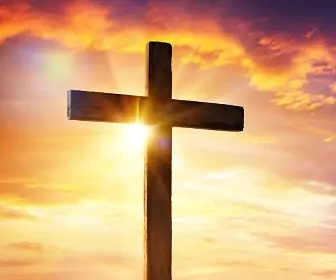
December 17 [last month], marked 28 years since the signing of the Nairobi peace talks. Later it was famously called the Nairobi peace jokes. So infamous that Emmanuel Cardinal Nsubuga (RIP) of Kampala Archdiocese had predicted a disaster even if the accord was signed.
After a deliberate and elongated delay – which was a military tactic by the rebels to replenish their ranks, Cardinal Nsubuga went to Nairobi as an ‘independent’ observer though not invited to observe and come to speed with the issues that were hampering the signing of the accord.
After a week in Nairobi, on September 25, Cardinal Nsubuga told the press that the peace talks were headed for a collapse soon or later if the mistrust between the Okello junta and National Resistance Army/Movement (NRA/M) led by Yoweri Museveni were not ironed out once and for all. He observed that none of the two delegations had honestly opened up for a real talk. Today, his words are indisputable.
Mistrust and dishonesty had characterised the peace talks from the beginning. On the maiden day of the talks on August 26, 1985, Museveni caused a stir in the conference hall when he entered and skipped everybody else on the Uganda government delegation and stretched his arm to only greet Paul Semwogerere, the minister for Internal Affairs seated next to foreign minister Olara Otunnu and junta vice chairman Col Gad Wilson Toko.
The Daily Nation and Standard newspapers of Kenya highlighted Museveni’s undiplomatic act at Harambee House. The Daily Nation wrote: “On entering the conference room, Mr Museveni, dressed in a grey suit, exchanged warm greetings with Mr Semwogerere and related a few of their experiences. Mr Museveni said: ‘How are you?’ and Mr Semwogerere replied. Okay. Then Mr Museveni told Semwogerere: “We have seen much” and Mr Semwogerere replied smiling: “You have not seen much, I have seen more than you.”
The Daily Nation also wrote: “In the conference hall Mr Museveni did not shake hands with Col Toko, leader of the government delegation or anybody else in it. However, some members of Mr Museveni’s group exchanged greetings with those in the government delegation.”
When this reporter asked Ms Gertrude Njuba, one of Museveni’s aides during the war and a participant during the talks why Museveni refused to shake hands with the government delegation, she answered: “We feared that he could be poisoned. You know some poison can be administered through hand shake. We were very careful with those people.” She hastened to add: “Even today, other than the peasants, Museveni is always careful when shaking hands.”
Asked why then he shook hands with only Semwogerere? She said: “We knew Semwogerere well. He was there to hoodwink the public.”
If it is true that Museveni’s refusal to shake hands with the Uganda government delegation was for fear of being poisoned, why did he greet all of them beginning with the Col Toko the government chief negotiator and with a big smile when the meeting reconvened on September 3?
The media again captured the scene and reported: “Museveni beaming with a smile, this time unlike last week shook hands with everybody in the government team.” It is not clear how Museveni’s hands had this time been protected. Needless to say, Museveni’s previous act had exhibited what Cardinal Nsubuga later told the world.
Although Ambassador Otunnu had accepted an interview with the Sunday Monitor, he didn’t answer his phone by press time.
On December 20, 2009, while in Gulu at the consecration of Bishop Johnson Gakuma of northern Uganda diocese at St Phillips Cathedral, President Museveni came face-to-face with Otunnu within an arms-length in a pavilion but again there was no shake of hands.
But in 2011 during the celebrations to mark 100 years of the Catholic Church in Acholi, Otunnu and Museveni, coming face-to-face in a space of 18 months, shook hands, breaking an ice that had lasted 26 years.
In spite of hiccups, on Tuesday December 17, 1985, Museveni and General Tito Okello Lutwa appended their signatures to the peace accord which the NRA unwillingly signed. From the first day, it was obvious that the NRA never wanted to dialogue with the UNLA.
The gestures, language and statements made by the NRA/M indicated they stand. For instance, on the first day of the talks, moments before entering the conference hall, Museveni issued a press statement accusing the Junta government of down playing the NRA’s role in the fall of Obote’s government.
In part the statement read: ‘…This is a deliberate attempt by certain negative interests – both internal and external to neutralise [NRA] the only organised people’s force’. The statement further charged: “We are taking this occasion to warn the leaders of UNLA faction in charge in Kampala that they may spoil the July 27, attempts to gain rehabilitation in the eyes of the people.” Museveni also warned: “Ugandans cannot trust such an army, nor can they trust any political arrangement dominated by elements of this type”. Both the Daily Nation and the Standard of August 27, 1985 reported.
Source-monitor.co.ug
Museveni Refuses to Shake Hands of Government Team
Museveni Refuses to Shake Hands of Government Team








